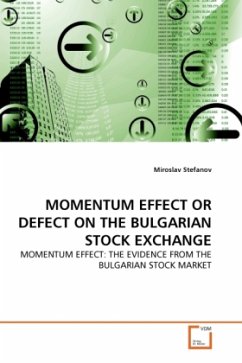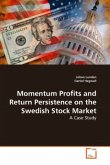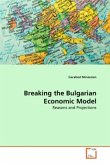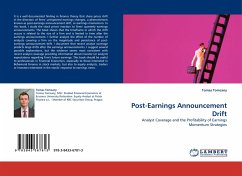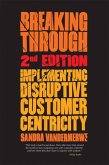This paper presents an empirical research and evaluation of trading strategies that buy past winners and sell past losers, also called relative strength or momentum strategies. The sample data is based on the monthly stock prices of all 378 shares traded on the Bulgarian Stock Exchange (BSE), covering the period from 2000 to 2010. Relying on time-series patterns in security returns, three sets of sixteen strategies each are implemented and analysed, similarly to the seminal study of Jegadeesh & Titman (1993). Results, however, show that there is no momentum effect on the Bulgarian stock market at a significant level. Moreover, buying winners and selling losers generates negative excess returns at a statistically significant level, but for a handful of strategies. The evidence from this paper, therefore, implies that predictable price patterns cannot be used to generate excess returns at a statistically significant level in the short and medium term.
Bitte wählen Sie Ihr Anliegen aus.
Rechnungen
Retourenschein anfordern
Bestellstatus
Storno

